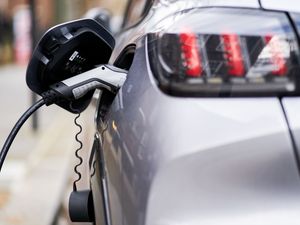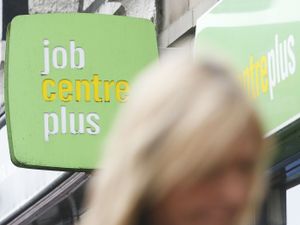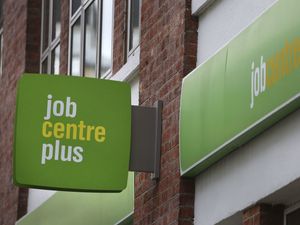A decade on from the demise of Rover
When John Towers swept through the gates of the Longbridge car plant in his Rover 75, he was feted like a knight in shining armour.
Union leaders and politicians hailed the former Rover executive who had stepped in at the 11th hour to save his old employer.
The champagne corks popped as the man of the moment promised to keep volume car manufacturing at the site.
It was a false dawn. And exactly 10 years ago today, administrators from PricewaterhouseCoopers were called in, signalling the death knell for the MG Rover Group, a giant of Midland industry, and the last major British-owned car manufacturer.
For nearly a century the Longbridge site churned out some of the best-known cars on the road, from the Austin Seven and the original Mini to the Allegro and the Metro.
It's name changed repeatedly, from Austin to BMC, British Leyland to Rover Group. But it was as MG Rover that Longbridge finally ran out of road.
A week later after the receivers were called in, with rescue attempts abandoned, the first redundancy notices were issued to MG Rover's 6,300 strong workforce.
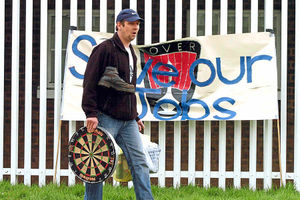
The repercussions were terrible. It is estimated another 3,000 workers at companies that relied on business from MG Rover also lost their jobs in the months that followed. Many firms were left struggling to survive, others simply went out of business.
Anger focused on the so-called Phoenix Four – Towers, Nick Stephenson, Peter Beale and John Edwards – who had bought the company from BMW for £10 five years earlier. It soon emerged they had paid themselves £42 million in salaries and pensions over their five years at the helm, while their workers were left without even redundancy payouts. The massive £1.6 billion debts of MG meant the 6,300 workers had to rely on state aid until they found jobs.
An Employees Trust Fund to help the cash-strapped workforce was set up with promises of major contributions from the Phoenix Four, but these never materialised.
Instead of the promised millions, a paltry £23,352 and 10p was finally amassed. In 2012 it was donated to the Acorns Children's Hospice in Selly Oak.
Historian Professor Carl Chinn had originally welcomed the takeover of Rover by the so-called Phoenix Four, but five years later was a powerful voice calling for justice for the workforce.
He says: "Even today there is still a lot of anger, bitterness and disappointment. The anger is that it could have become a successful business but was allowed to fail. The bitterness is for the workers who, in my opinion, have been betrayed. And disappointment that the West Midlands has lost a major manufacturer and a source of jobs."
It was all so different to its origins in November 1905, when Berkshire-born engineer Herbert Austin decided to buy a small, disused printworks on the outskirts of Birmingham and produced his first car in March, 1906, at a price of £650. The Austin Seven followed in 1922 and was a huge success, becoming Britain's answer to the Ford Model T.
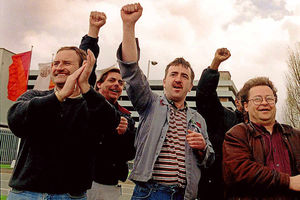
But by 1968 governmental industrial planners decided that for the UK's car firms to compete in the global market place, they would need to be welded together to form the now infamous British Leyland Motor Corporation. It didn't work and seven years later the new company had to be nationalised.
After crippling strikes in the 1970s, all hopes were pinned on the new Austin Metro, which made its debut in 1980. The company established a partnership with Japanese manufacturer Honda, building its popular Ballade small saloon car under licence, badging it as the Triumph Acclaim, and later the Rover 200. By 1988, it looked like the firm had turned the corner, and the renamed Rover Group was sold to British Aerospace.
Six years on Rover was sold to the German BMW group, but after years of losses it too decided to sell up. Solihull-based Land Rover went to Ford, while BMW kept for itself a planned new Mini, which would be built at Cowley. The rump of the business, at Longbridge, was another matter.
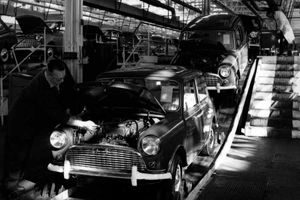
Venture capital group Alchemy Partners, headed by Stoke-born Jon Moulton, announced plans to buy the plant and scale down production, dropping the Rover brand and focusing on niche products carrying the MG badge. However, the proposals were met with protest amid fears the workforce would be slashed by more than half. And then came John Towers. His promise to keep volume production at Longbridge was music to the ears of campaigners. However, financial commentators were sceptical, saying the renamed MG Rover lacked the resources to develop badly-needed new models.
The BMW-developed Rover 75 sold reasonably well, but dated quickly, while the Rover 45 was now 10 years old and competing against far more modern designs.
As sales slid year on year, Towers and his Phoenix partners tried to secure an outside partner. In the last 18 months the focus of their attention was Chinese car giant Shanghai Automotive.
But, in April 2005, the Chinese suddenly pulled out of the deal, frightened off by a combination of MG Rover's existing debts and its huge pension liabilities.
Last-ditch efforts by Tony Blair's Labour Government to get Shanghai Automotive back on board came to nothing and, within a week of administrators being called in on April 8, MG Rover's 6,300 workers were sacked and the factory closed.
Around a dozen firms in Shropshire supplied the group, but industry expert David Bailey, a professor at Aston University, says it could have been a lot worse for them.
"If it had gone under in 2000 it was estimated 25,000 jobs would have been lost in the region," he said. "As it was, when it finally went under five years later, 9,000 to 9,500 jobs were lost.
"Those five years gave firms a chance to diversify."
Andrew Morris, managing director of Shrewsbury-based Stadco, said at the time: "Rover is not our biggest customer in Shrewsbury, but it is big enough to hurt us. We will be talking to our employees over the coming days, but we are hopeful that any impact on them will be limited and controlled."
GKN Sankey in Telford made metal pressings for the Rover 75, but said that by this time it was one of its smaller customers. Denso and TI automotive in the town also made Rover parts.
Welshpool-based Cobra Marche was hit even harder, as it folded the following year with the loss of 50 jobs. The company – which has no connection with Telford-based Cobra Car Seats – had manufactured soundproofing and trim components for car manufacturers.
It was also bad news for the dealers who made their living selling the cars, too. Sidler, which had been the county's leading Rover dealer, had been forced to close three years earlier, however the franchisewas taken over by Furrows.
Oswestry Car Centre in Lower Brook Street was an MG Rover franchise at the time of the collapse. The building was taken over by Vauxhall dealer Arthurs of Oswestry.
In the months after the collapse, another Chinese firm, Nanjing Automotive, bought MG Rover's assets for £53million, and shipped production lines to China where a new factory was set up to make cars for the home market.
But Nanjing, later bought by Shanghai Automotive (SAIC), started making cars assembled from Chinese made kits in a small corner of the Longbridge site, where SAIC now also employs 300 design engineers. Since then it has gone on to launch the MG6 and the MG3 supermini, but sales remain small.
Meanwhile, most of the 468-acre site has been developed by St Modwen, the property company that bought the site in one of MG Rover's attempts to raise funds in its final years. The factory has gone, replaced by Longbridge town centre. Hundreds of homes have also gone up.
After the collapse, the Phoenix Four defended their stewardship, but final judgement on their tenure came in 2011 when the Insolvency Service ruled they were unfit to serve as company directors.
Peter Beale was disqualified for six years, John Towers and Nick Stephenson for five and John Edwards for three.
Ten years on, the car industry in Britain has seen something of a revival. Reborn West Midlands powerhouse Jaguar Land Rover, now owned by the Indian Tata group, sells more cars than MG Rover ever did.
And Moulton, the man who became a hate figure as protesters vented their spleen about his plans to scale down production at Longbridge is adamant he could have saved Longbridge, and blames former Trade Secretary Steven Byers for the company's demise.
"Essentially, MG had become too small and backward to survive in the very difficult world of mass car production," he said in a 2009 interview.
"It still had some great brand names and an image in its sports cars which resonated globally. So we had the idea of getting enough money from BMW to wind down the non-sports-car business and to make a good fist of having a sports-car business.
"We would have got there but for the intervention of Mr Byers who backed the Phoenix Four and left MG on a short road to ruin."

